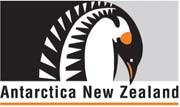Roosevelt Island climate evolution project
by Matt Vance on 4 Feb 2011

Antarctica New Zealand Antarctica New Zealand
Antarctica New Zealand, a Kiwi-led group of scientists, have just returned from establishing a camp at the remote Roosevelt Island, some 700km east of Scott Base. The Roosevelt Island Climate Evolution (RICE) project, a seven nation collaboration between New Zealand, United States, Denmark, Germany, Great Britain, Australia, and Italy, aims to quantify how stable the West Antarctic Ice Sheet (WAIS) will be in a warming world.
The stability of WAIS is highlighted as a major concern and uncertainty in the latest report of the Intergovernmental Panel on Climate Change (IPCC), the UN authority for assessment and advice on climate change and its potential consequences to society.
Over the past 2.5 months, the RICE Team completed their final field reconnaissance which included high resolution radar surveys, the deployment of an automatic weather station, and a 200km array of mass balance devices. Furthermore, the group recovered a number of 10m long ice cores, collected over 1,000 snow samples, and winterised over 20,000 kgs of equipment on Roosevelt Island in preparation for next year’s drilling operation. The ice cores will be processed in the purpose-built New Zealand Ice Core Research Laboratory at GNS Science. The analyses will be carried out at eleven leading laboratories, including Victoria University of Wellington, GNS Science, and NIWA in New Zealand.
Chief Executive of Antarctica New Zealand, Lou Sanson, said, 'The significant distance to the site from Scott Base means this is one of the most logistically ambitious projects that we have ever supported; however the rewards of this effort will be in being able to provide the international community with new information on the stability of the WAIS in a changing climate. This project is New Zealand’s first deep field involvement in the WAIS in 20 years in the area of Antarctica which is most vulnerable to climate change.'
The RICE ice core is expected to provide an annually resolved record for the past 30,000 years; a period when Antarctica experienced significant warming that ended the last Ice Age. This extremely high resolution record will allow the RICE team to establish how quickly the Ross Ice Shelf retreated as temperature and greenhouse gas concentration increased.
Previous research by the New Zealand-led Andrill programme has found that when the Ross Ice Shelf disappeared in the past, the WAIS became unstable and disintegrated. Prof. Tim Naish (Co-Chief Scientist of the ANDRILL programme) and colleagues showed that during such episodes, the melting of ice of the WAIS contributed 5-7m to global sea level rise.
Dr Nancy Bertler of the Joint Antarctic Research Institute at Victoria University and GNS Science is heading the RICE project. The work of Dr Bertler and her team will contribute a critical data set to IPCC predictions on how quickly the Ross Ice Shelf and WAIS are likely to respond to climate change in the next 50-100 years which will help to quantify how quickly global sea level will rise as a consequence.
www.antarcticanz.govt.nz
If you want to link to this article then please use this URL: www.sail-world.com/79990